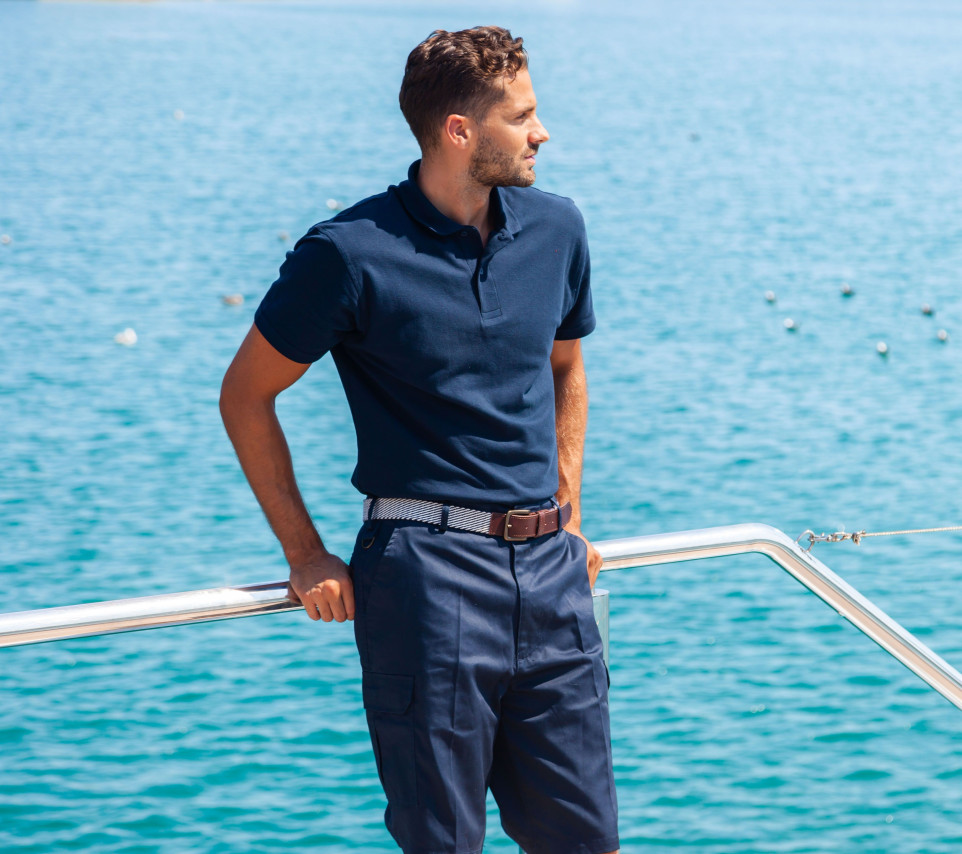
How is your team doing? Really? Ready to get back to work, back to the ocean and back to living? BUT, look out for the warning signs especially during a busy season…

I’m Femke, a training specialist in Antibes and I worked on yachts for over 10 years before joining the Bluewater team.
During my career I experienced first hand how stressful life onboard can be, especially during a busy season!
I understand the difficulties of living in close quarters, sharing a small cabin, and the importance of open dialogue with your team.
I spoke with Emma Kate Ross from Seas the Mind, who gave us some tips on what captains and heads of departments should be looking out for; signs and symptoms in your fellow crew as well as how to approach, assist, listen and communicate.
For more information on the topic of mental health, check out the Mental Health First Aid courses, also available on zoom.
These could be tell-tale signs that it’s time to approach the crew member you’re concerned about.

It is statistically better to reach out and talk to the person, as you would if you saw a sign or symptom of a physical injury or illness.
Imagine a crew member was limping on the side deck whilst bringing in provisions. Most would feel comfortable asking “what’s up?”, ”what’s going on with your leg?”, “are you OK?”
Then it allows you as a Captain or HOD to understand the problem and start to manage it. It’s the same with mental health.
The sooner it is acknowledged and addressed, the easier a potential problem is to manage.
Discuss the following with the crew member: if they need help, if you are able to help and what they need to get through this. Coordinate with the department head to keep an eye on the crew member and check in again later in the day or the week to monitor their progress.

Should you determine that they are fine to continue working, with a bit of care and consideration, keep the conversation open and keep checking in as much as you would with a physical injury.
Ask if they are open to talking to you. If yes, make time when you will not be disturbed. If this needs to happen later in the day, so be it.
The focus and privacy needed to have open and authentic conversations is more important than at what time it happens.
Try to keep judgement out of the conversation - this is a skill that can be practised and honed, and I’ll teach you some techniques during my zoom sessions and classroom workshops.
Should you feel the problem or situation they’re going through really needs additional support, encourage them to seek professional help.
There are many organisations they can turn to, as well as the Seas the Mind check-in chats:
ISWAN offers a free ‘Seafarer Help’ multilingual helpline, available 24/7 for all seafarers and their families.
Kelly’s Cause ’Check-in Chat’ with a trained mental health first aider from hospitality who will respond to any communication, along with yacht crew and chefs available online to help.
SHOUT In the UK? Text SHOUT to 85258 any time day or night. This is a free and confidential text messaging support service for anyone who is struggling to cope.
Crisis Text Line In the United States? Text HOME to 741741 from anywhere in the USA, at anytime, to contact Crisis Text Line.
A trained crisis counsellor will respond to your messages from their secure online platform
Encourage the crew member to reach out to friends and family during this time, and encourage them to communicate with people they love and who love them.
Encourage them to reduce, if they can’t restrict, some of their unhelpful coping strategies.
Suggest they call home or a good friend before heading out for a drink.
As a leader it is our duty to keep our teams safe, working at full capacity and doing what the owner and the boat requires of them.
But we are not machines, we are humans, and the simple act of acknowledging we can fail and fall, goes a long way.
Creating an environment where we feel safe and stable, means that when life inevitably throws us challenges we can rise up to meet them, ensuring that we minimise the damage to the individual(s) experiencing pain, to the rest of the crew and to the boat’s overall functioning.

I am currently onboard a superyacht working as a rotational chef, so I deliver these courses during my ‘off-time’ and add new dates to the Bluewater training calendar. Visit the course page to book your courses directly.
I look forward to meeting and helping more crew over the coming months, if you’re onboard and can’t get to one of the training centres in Antibes or Palma, book on one of my half-day zoom sessions for an introduction in to this topic and some key pointers on how you can assist your team.